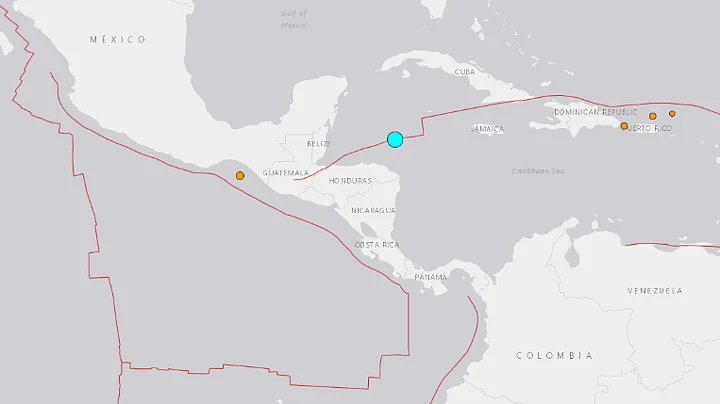An earthquake of magnitude 7.6 that struck near remote islands belonging to Honduras on Wednesday, 10 January was felt across northern Central America, prompting a tsunami warning for parts of the Caribbean.
The quake rattled windows in the Honduran capital of Tegucigalpa, roughly 519 km (323 miles) to the east, and was felt at least as far north as the Mexican state of Quintana Roo, but no damage was immediately reported.
The Pacific Tsunami Warning Center said a tsunami advisory was in effect for Puerto Rico and the US Virgin Islands after the earthquake, and warned of possible waves up to one metre (three feet) above tide level.
Rodrigo Anaya Rodriguez was in a hammock inside his house, near popular tourist site Bacalar Lake on Mexico's Caribbean coast in Quintana Roo, when he felt three tremors.
"It felt like a bulldozer was driving past," he said. "It didn't last long but was very violent."
He ran to his balcony and saw electricity posts and cables swaying.
In Honduras, firefighters said some residents in southern neighborhoods fled their homes after feeling the shaking.
"We have reports that it was felt in the majority of the country, but we don't have reports of damage," said Lizandro Rosales, director of Honduras' contingencies commission.
The United States Geological Survey said the quake, initially reported as a magnitude 7.6, was centered 202 km (125 miles) northeast of Barra Patuca in Honduras, and 307 km (191 miles) southwest of George Town in the Cayman Islands. The quake was very shallow, only 10 km (6.2 miles), which would have amplified its effect.
It was lightly felt in Belize's capital, Belize City, but did not prompt immediate reports of damage.
Belize's minister in charge of emergency management, Edmond Castro, spoke on local radio to urge people living in low lying coastal areas and islands to stay alert for potentially dangerous waves.
(With inputs from Reuters. This is a developing story.)
(At The Quint, we question everything. Play an active role in shaping our journalism by becoming a member today.)
